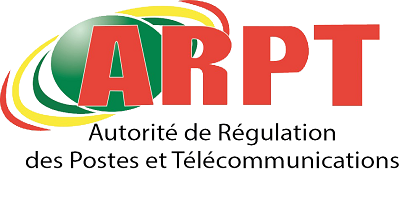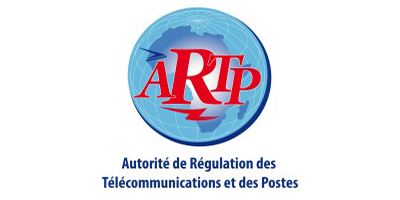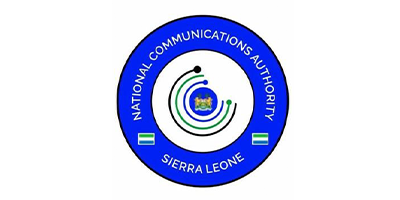What We Do
WATRA partners with regulators in 16 West African nations to develop policies that boost investment in telecom infrastructure, making communication services cheaper and more accessible, enhancing economic transactions, and improving public service access. This collaboration aims to advance economic and social development in the region.
WATRA works with regulatory authorities in the Member States to promote:
- Transparent Regulatory Frameworks: Establishing clear and transparent regulatory frameworks that provide a stable and predictable environment for investors in telecommunication infrastructure and services in all West African states. This includes well-defined rules and policies governing the telecommunications sector.
- Market Competition: West African telecommunications regulators work together to encourage healthy competition among telecom service providers, thus fostering innovation and efficiency, and attracting investments. The objective is to make West African telecommunications markets competitive, prevent monopolies, and promote fair market practices.
- Broadband Development: West African telecommunications regulators understand the importance of broadband infrastructure as a key driver of economic development. They continuously explore policies and initiatives to promote the widespread deployment of high-speed internet in West African communities
- Regulatory Impact Assessments: West African telecommunications regulators encourage regular assessments of the impact of regulatory decisions on the market and the investment climate. This allows regulators to learn from each other and make informed adjustments and refine policies to better stimulate investment.
-
Spectrum Management: Effectively managing the allocation and assignment of radio frequency spectrum is essential for the development of telecommunications services. West African telecommunications regulators increasingly adopt practices such as auctioning spectrum licenses, ensuring efficient use, and encouraging investment in network infrastructure.
WATRA is keen to work with national regulatory authorities to ensure that West Africa fully migrates to a spectrum licensing regime marked by appropriate pricing that prevents costs from being passed on to service users and by technology neutrality. Regulators should fix spectrum fees which are designed to cover the cost of administration rather than raise revenue. Technology neutrality aids the rollout of high-speed broadband internet to more users are service providers reconfigure spectrums for mobile broadband. WATRA is working with national regulatory authorities so that more and more of them adopt and implement these principles.
- Incentive Programmes: West African telecommunications regulators learn from each other and from outside the region the best financial incentives or tax breaks to telecom operators that have proven to be powerful tools to attract investment, and deliver more affordable services. These incentives may include reduced taxes, subsidies, or other financial rewards for meeting specific development targets that create more economic opportunities in West African communities when more citizens, small businesses, and government use communication technologies.
- Infrastructure Sharing: Facilitating infrastructure sharing among telecom operators helps reduce the overall cost of building and maintaining networks. West African telecommunications regulators encourage policies that promote collaboration amongst telecom operators through policies that promote co-location, tower sharing, and resource pooling. These policies ultimately translate into the reduction of cost to citizens and the expansion and greater usage of telecommunication services in West Africa.
- Regulatory Predictability: Investors value regulatory stability and predictability. West African telecommunications regulators aspire to collectively provide a long-term vision and avoid frequent and unpredictable changes in regulations. They intend to make West Africa stand out globally as an environment conducive to sustained investment in telecommunication infrastructure and services.
- Consumer Protection Measures: West African telecommunications regulators are committed to implementing measures to protect consumers' rights and interests that instill confidence in the market. A satisfied and confident consumer base attracts investors who see a stable and growing market for their services.
- Capacity Building: West African telecommunications adopt best practices and learn from each other through training and development programmes that ensure that they have the expertise to navigate the evolving telecommunications landscape and make informed decisions that support investment.
- Local Content & Digital Skills: There is an “adoption gap” i.e. non-usage or underusage of ICT products and services even when they are available and affordable by segments of the population in rural as well as urban areas. For non-literates, services which rely on visual aids and voice prompts rather than text are ways of encouraging usage. The creation of very relevant content, including by public agencies delivering services through digital channels, also boosts the relevance of content and thus usage. WATRA is committed to expanding the digital economy in West Africa by encouraging learning and adoption of initiatives that promote relevance and usage.
- Universal Access Funds: Universal Access Funds remain the primary means to expand service to excluded people and communities even in the most advanced markets. They are far more important in West Africa where about 60% of the population is still not connected to the internet. Innovations around the use of Universal Access Funds are urgently required to expand access to telecommunications services in the region. WATRA is studying the most promising emerging models in the world in using Universal Access Funds to extend services to excluded people, communities, and economic sectors. How to adapt global best practices and build on successful models existing in the region in the use of Universal Access Funds is a critical part of our dialogue with national regulatory authorities.
Working Groups
Infrastructure Development
WATRA supports and facilitates the deployment and expansion of telecommunications and ICT infrastructure in the region, to meet the growing demand and needs of the telecommunications and ICT sector in the region. WATRA also manages and allocates the radio spectrum and numbering resources in the region, and ensures that they are used efficiently and effectively.
Cybersecurity
WATRA protects and secures the telecommunications and ICT networks and users in the region, from the threats and risks of cyber attacks and cyber crimes. WATRA develops and implements the ECOWAS Regional Cybersecurity and Cybercrime Strategy, which covers areas such as the legal and institutional framework, the capacity building, the awareness raising, the cooperation and coordination, the prevention and response, etc.
ECOWAS Regional Roaming
Regional Roaming: WATRA facilitates and enhances the roaming of voice, SMS, and data services within the region, for the convenience and satisfaction of the consumers and operators. WATRA harmonizes and coordinates the regulatory and technical aspects of roaming in the region, such as the tariffs, the quality of service, the consumer protection, the fraud prevention, etc.
Capacity Building Programmes: WATRA organizes and hosts various events, such as the annual general meeting, the regional regulatory forum, the capacity building workshops, the public consultations, and the regional awards, to promote dialogue, knowledge sharing, and capacity building among the member states and other stakeholders in the telecommunications and ICT sector in the region. WATRA also produces and disseminates various publications, such as the reports, studies, guidelines, and newsletters, to provide information and education on the telecommunications and ICT sector in the region.

















